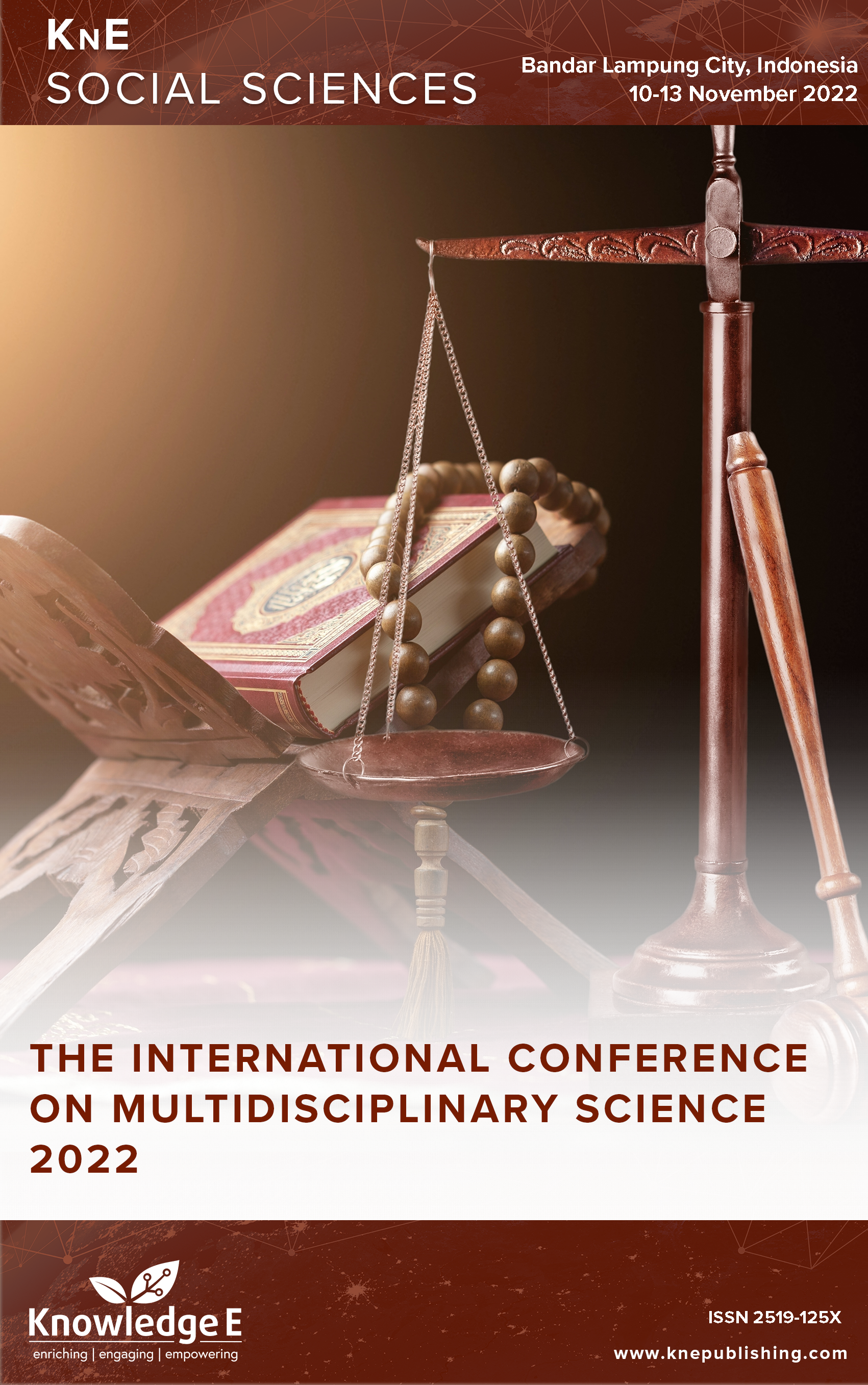The Perceptions of Nepotism and Political Participation in Students
DOI:
https://doi.org/10.18502/kss.v8i16.14030Abstract
Society participation is the main system of support for a democratic political system. As elections are the main instrument of democracy they require high and quality participation for the realization of substantive democracy. The population in this study were students of the Economic Law Study Program, and faculty of Sharia UIN Raden Intan Lampung, class of 2019. The total was 223 students, and with a cluster random sampling technique a sample of 84 students were used. The measuring instrument in this study used a data collection method in the form of a Likert scale consisting of two scales, namely the Political Participation Scale, and the Nepotism Perception Scale. The data were analyzed using the product moment correlation technique assisted by the JASP 0.16.1.0 for the Windows program. The results showed a correlation value of r = 0.611 with a significant level of p = 0.000 (p <0.01) which means the hypothesis is accepted and there is a significant relationship between the Perception of Nepotism and Political Participation with R2 = 0.373. This states that the independent variable makes an effective contribution of 37.3%.
Keywords: Political Participation, Perceptions of Nepotism and Students.
References
Arniti NK. Community Political Participation in Legislative General Elections in Denpasar City. Scientific Journal of Social Dynamics. 2020;4(2):329–48.
Azhar, S. Community Political Participation in the Regional Head Election of Baubau City. Journal of Government and Political Studies. 2019;2(2).
Blue, MIR. Community Participation in the 2019 Election in Kutai Kartanegara Regency. EJournal of Government Science. 2020;8(2).
Dunggio S, Yantu IN. Case Study of Community Political Participation in Regional Head Elections of Bone Bolango District in the Middle of the Covid 19 Pandemic. Public: Journal of Human Resource Management. Administration and Public Services. 2021;8(2):156–69.
Hemafitria H, Novianty FN, Fitriani F. Political Participation in the General Election of Regional Heads in the Village of Rapakan, Sambas Regency [Pancasila and Citizenship]. PKN Education Journal. 2021;2(1):37–51.
Miaz, Y. Political Participation: Behavioral Patterns of Voters in the New Order and Reform Era. 2012.
Mudjiyanto B. New Media, Political Culture And Political Participation (Survey of Voters in Jambi, Babel and Jakarta Regarding Political Communication Activities Through New Media). Journal of Communication and Media Studies. 2014;18(2):183– 98.
Putra MS. The Effect of Nepotism on Job Satisfaction, Organizational Commitment and Intention to Stay. Journal of Management Applications. 2012;10(3):553–63.
Sa’ban LA, Sadat A. Community Political Participation in the 2018 Baubau City Regional Head Election. JIP ( Journal of Government Science). Study of Regional Government and Political Science. 2019;4(1):29–38.
Sugiyono. Quantitative, qualitative, and R&D research methodologies. Bandung: Alphabet. 2016.
Suharyanto A. Newspapers as one of the media for delivering political information to people’s political participation. Journal of Public Administration: Public Administration Journal. 2016;6(2):123–36.
Syaifullah DH, Fahham AM, Khoiriyani F, Dani FZ. Correlation between Perceptions of Service Quality and Perceptions of Small-Scale Corruption at the Semarang Religious Education and Training Center. Aspirations: Journal of Social Problems. 2022;13(1):19–36.
Talaohu AR. Political Participation of Women in Legislative Elections in Ambalau District, South Buru Regency. BESTERKUNDE. 2021;1(1):15–28.

